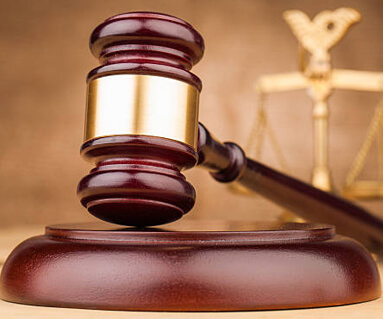
In criminal law, we talk a lot about character, but mainly in the context of ‘bad character’, or previous convictions that the prosecution will try to put before a jury to persuade them of the defendant’s guilt. After all, if he’s done it before, he is more likely to have committed this crime too, is the general thrust of the argument.
But of course, not all defendant’s facing criminal trial have previous convictions, and in those circumstances, the issue of ‘good character’ arises.
This is, of course, the reverse of the prosecution argument – he is a man of good character and is, therefore, less likely to have committed the crime charged.
It is in fact much more complicated than that, and we believe it is an aspect of case preparation that is often overlooked, to the detriment of the person standing trial.
What is The Purpose of Establishing Good Character?
For centuries, it has been accepted that evidence of the accused’s good character is admissible in criminal trials.
In the modern era, the courts have accepted that good character evidence may be admissible:
To bolster the accused’s credibility and
As relevant to the likelihood of guilt.
How is Good Character Established?
In most cases, good character is a matter of fact, in that if a person has no previous convictions they will by definition be of good character.
But even then, a person may be deprived, at least in part, of their good character status depending on the nature of any evidence they have given.
Likewise, a person may not start off with good character but may be able nonetheless to obtain a good character direction. This is often referred to as ‘qualified or effective good character’. A common scenario is where any convictions are either so old or so irrelevant to the matter before the court, that it would be unjust to take them into account.
An essential part of establishing good character is also to consider carefully whether character witnesses should be called on your behalf. These are people who know you well and who will speak positively about you.
In choosing character witnesses, it is preferable to try and find people who will be highly credible themselves in the eyes of the court or jury, people who would not be willing to lie about a person’s character and qualities simply out of an allegiance to that person.
Do I Have to do Anything?
It is critical that good character or qualified good character is not overlooked during case preparation. It is for the defence to formally establish good character and ensure that the issue is properly before the court for consideration.
If defence advocates do not take a point on the character directions at trial and/or if they agree with the judge’s proposed directions which are then given, these are good indications that nothing was amiss. This means that attempting to cure any defect on appeal is unlikely to meet with success.
The Court of Appeal has held:
“…as a matter of good practice, if not a rule, defendants should put the court on notice as early as possible that character and character directions are an issue that may need to be resolved. The judge can then decide whether a good character direction would be given and if so the precise terms. This discussion should take place before the evidence is adduced. This has advantages for the court and for the parties: the defence will be better informed before the decision is made whether to adduce the evidence, the Crown can conduct any necessary checks and the judge will have the fullest possible information upon which to rule. The judge should then ensure that the directions given accord precisely with their ruling.”
What is The Content of a ‘Good Character’ Direction?
The actual direction to the court or jury depends on the exact circumstances of the case, but this is a typical full direction:
‘You have heard that the defendant is a man in his middle years with no previous convictions. Good character is not a defence to the charges but it is relevant to your consideration of the case in two ways. First, the defendant has given evidence. His good character is a positive feature of the defendant, which you should take into account when considering whether you accept what he told you. Secondly, the fact that the defendant has not offended in the past may make it less likely that he acted as is now alleged against him.
It has been submitted on behalf of the defendant that for the first time in his life he has been accused of a crime of dishonestly. He is not the sort of man who would be likely to cast his good character aside in this way. That is a matter to which you should pay particular attention.
However, what weight should be given to the defendant’s good character and the extent to which it assists on the facts of this particular case are for you to decide. In making that assessment, you may take account of everything you have heard about him.’
In the magistrates’ court, the defence advocate should ensure that the court clerk advised the magistrates’ correctly on this direction.
How we can assist
We believe in proactive defence work, not merely responding to the prosecution case, but at the same time doing all possible to build a strong defence case. Considerations about character, both good and bad, are just one aspect of that case preparation, albeit a significant one.
To discuss your case, please call Broadbents Solicitors or send your enquiry through our online contact form.




